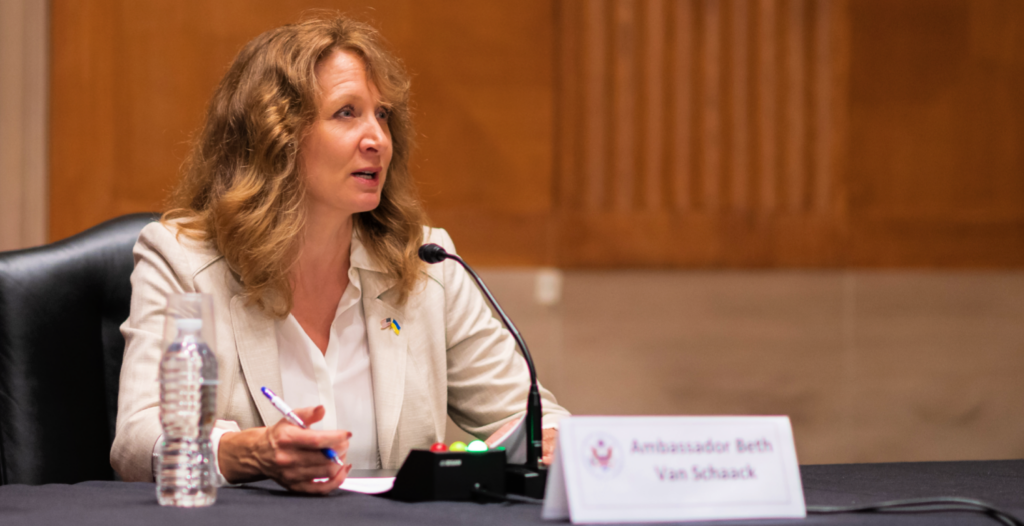WASHINGTON – The United States Helsinki Commission will conduct a briefing to survey domestic violence in participating States of the Organization for Security and Cooperation in Europe (OSCE).
The briefing will examine research data on domestic violence in the OSCE region with a focus on Albania, Armenia, Bulgaria, Macedonia, Moldova, Romania, Ukraine and Uzbekistan. The briefing will also examine the extent to which governments, particularly law enforcement authorities, have fulfilled their responsibilities to protect individuals from such abuse. Participants will discuss U.S. models for providing services to victims of domestic violence, including the response of faith-based communities.
Domestic Violence in the OSCE Region
Friday, September 7, 2001
10:30 AM to 12:30 PM
Room 2200 Rayburn House Office Building
Open to Members, Congressional staff, Press and the Public
Scheduled panelists:
Robin Phillips, Director of the Women’s Human Rights Program, Minnesota Advocates for Human Rights
Winnie Bartel, Executive Chair of the World Evangelical Fellowship’s Commission on Women’s Concerns and the Task Force to Stop Abuse Against Women
Nancy Murphy, Executive Director of the Northwest Family Life Learning and Counseling Center
Background: Violence against women is perhaps the most pervasive human rights abuse in the world. Domestic violence has been deemed a serious problem in every country where it has been studied. Research shows that women of all ages and socioeconomic and educational backgrounds are subject to domestic violence. Research has also revealed high levels of domestic violence in many of the 55 OSCE participating States and many of these cases are never reported to authorities.
Government officials often minimize the problem or consider it a private matter outside the purview of the legal system. Police routinely discourage women from making complaints, and abusers are rarely removed from their homes or jailed. Police, prosecutors and the courts often respond to domestic violence by urging women to reconcile with their abusers regardless of the potential danger posed to the victim. In many countries, legal and social services for domestic violence victims are lacking.
OSCE participating States committed to address violence against women in the 1991 Moscow Document of the Conference on the Human Dimension and again in the 1999 OSCE Charter for European Security.
A government’s responsibility for protecting individuals from human rights abuses includes ensuring that women enjoy their rights to life, to security of person, and to freedom from torture or cruel, inhuman or degrading treatment. When these rights are violated, governments are obligated to respond appropriately.
In June 2001, the OSCE convened a meeting in Vienna, Austria to raise awareness of the scope and severity of the problem of violence against women, including domestic violence, in the OSCE countries.
The United States Helsinki Commission, an independent federal agency, by law monitors and encourages progress in implementing provisions of the Helsinki Accords. The Commission, created in 1976, is composed of nine Senators, nine Representatives and one official each from the Departments of State, Defense and Commerce. Additional information about the Commission is available on the Internet at http://www.csce.gov.





